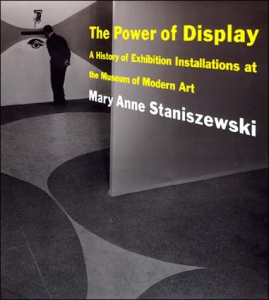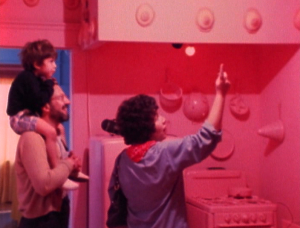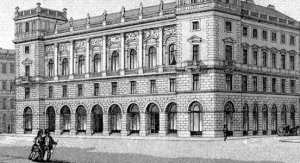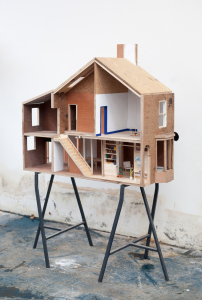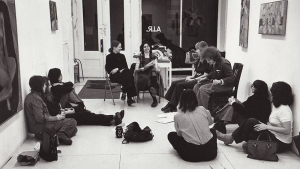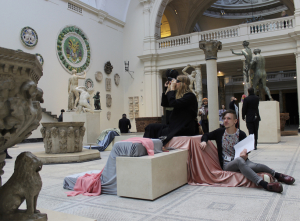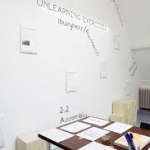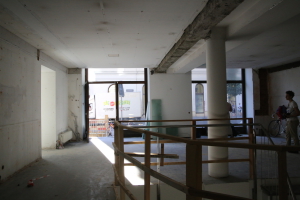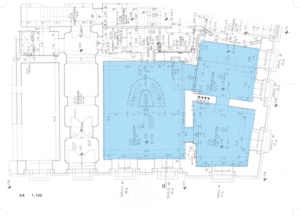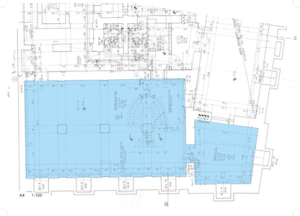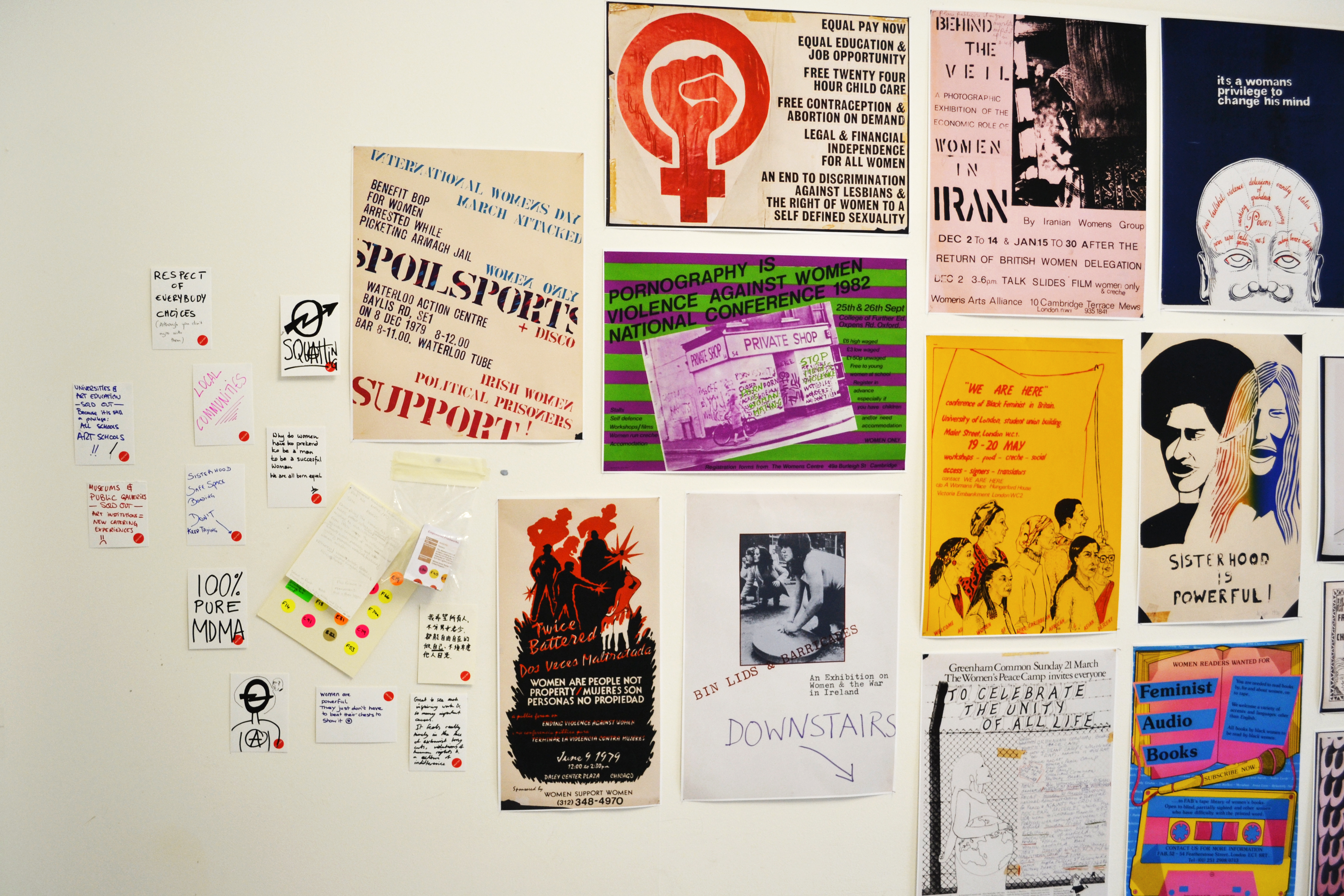
Ego Ahaiwe Sowinski and Aida Wilde, wall installation of the Women’s Art Library in the exhibition »Empowered Printwork«, Goldsmiths, University of London, 2015 Foto: Will Cenci
DISPLAY DARK ENERGY
Exhibition design for the exhibition
Dark Energy
feminist organizing, working collectively
xhibit – exhibition space of the Academy of Fine Arts Vienna
March 2019
We will develop collectively the exhibition design for the show “Dark Energy” that I conceptualized and now organize together with three colleagues. The exhibition will take place in March 2019 at xhibit, the exhibition space of the Academy of Fine Arts Vienna. The task of this course is to develop an exhibition design that will be implemented in January/February 2019.
METHODS & QUESTIONS:
The exhibition looks into feminist forms of organizing and the economies of their knowledge production in the cultural sector (for more info see below). The exhibition design should react to this conceptual framing.
For the development of the design we will use the following approaches:
- Reading and critical discussion of exhibition design theory, as well as of examples of feminist spatial strategies for exhibition making;
- research into the (imperial) history of Palais Eschenbach (the site of the exhibition) and its contemporary situation within the urban and cultural context of Vienna;
- discussion of art practices related to the works in the show.
- We will work with models that allow us to develop the design collectively and to experiment with basic aspects of materiality, structure, arrangements, and colors;
- we use conceptual drawings to communicate relations or sequences of spaces;
- and we carry out 1:1 trials.
The aim of these techniques is to learn to communicate our ideas within the group;
to enable a design driven by the discussions of this design course.
More information on the EXHIBITION
Dark Energy
feminist organizing, working collectively
Concept and organization:
Véronique Boilard, Andrea Haas, Nina Höchtl, Julia Wieger
The title of the exhibition—Dark Energy—refers to Gregory Sholette’s book “Dark Matter” in which he uses the metaphor of dark matter in outer space to describe the exploitative nature of the cultural industries. He likens it to what astronomers call dark matter—the mass that they know exists but cannot be seen. Sholette writes:
Apart from domestic and care work—art is the industry with the most unpaid labour around. It sustains itself on the time and energy of unpaid interns and self-exploiting actors on pretty much every level and in almost every function. Free labour and rampant exploitation are the invisible dark matter that keeps the culture sector going.
The subtitle of the exhibition—“feminist organizing, working collectively”—zooms in on feminist cultural practices. The invisible matter and movements that Shollette describes are often made up of spontaneous, amateur, autonomous, activist, self-organized, collective practices that play an important role in feminist cultural work. In the frame of this exhibition we look into feminist forms of organizing and the economies of their knowledge production in the cultural sector.
Information on the WORKS in the exhibition
The exhibition will show works by the following artists:
1 Annette Krauss & the Casco Team
2 Anne-Marie Proulx
3 anti*colonial fantasies
4 Althea Greenan und Felicity Allen
5 Belinda Kazeem-Kaminski
6 Ego Ahaiwe Sowinski and Aida Wilde
7 Minna Henriksson
8 Mathilde Geromin
9 Sekretariat für Geister, Archivpolitiken und Lücken
10 Widerständige Archive Gruppe
11 Véronique Boilard / material from the archive of La Centrale
12 Video program curated by Anne Golden
Examples of WORKS exhibited
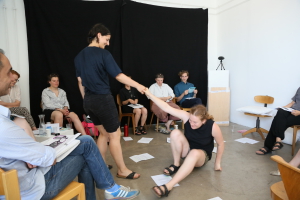
WIDERSTÄNDIGE ARCHIVE / ARCHIVING AS RESISTANCE / DİRENİŞİN ARŞİVLENMESİ, Maren Luise Blume, Andrea Haas, İpek Hamzaoğlu, Franziska Kabisch, Ruth Lang, Juliane Saupe, Katharina Swoboda, Julia Wieger, photo: İpek Hamzaoğlu, 2015
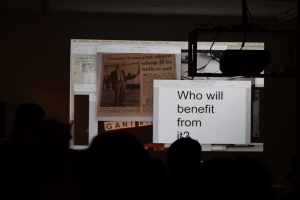
Anti*Colonial Fantasies / Decolonial Strategies, Imayna Caceres Sunanda Mesquita, Sophie Utikal, 2016
Info on the EXHIBITION SPACE
The exhibition space is located on the ground and basement floor of Palais Eschenbach in Eschenbachgasse in the 1st district of Vienna. The Palais was built in 1872 by the Austrian Trade Association. Today, its adjacent street has become one of the main gallery streets of Vienna. In 2016, the Academy of Fine Arts rented the premises to relocate its university exhibition space. The space is currently being remodeled and will open in January 2019 with a diploma show.
